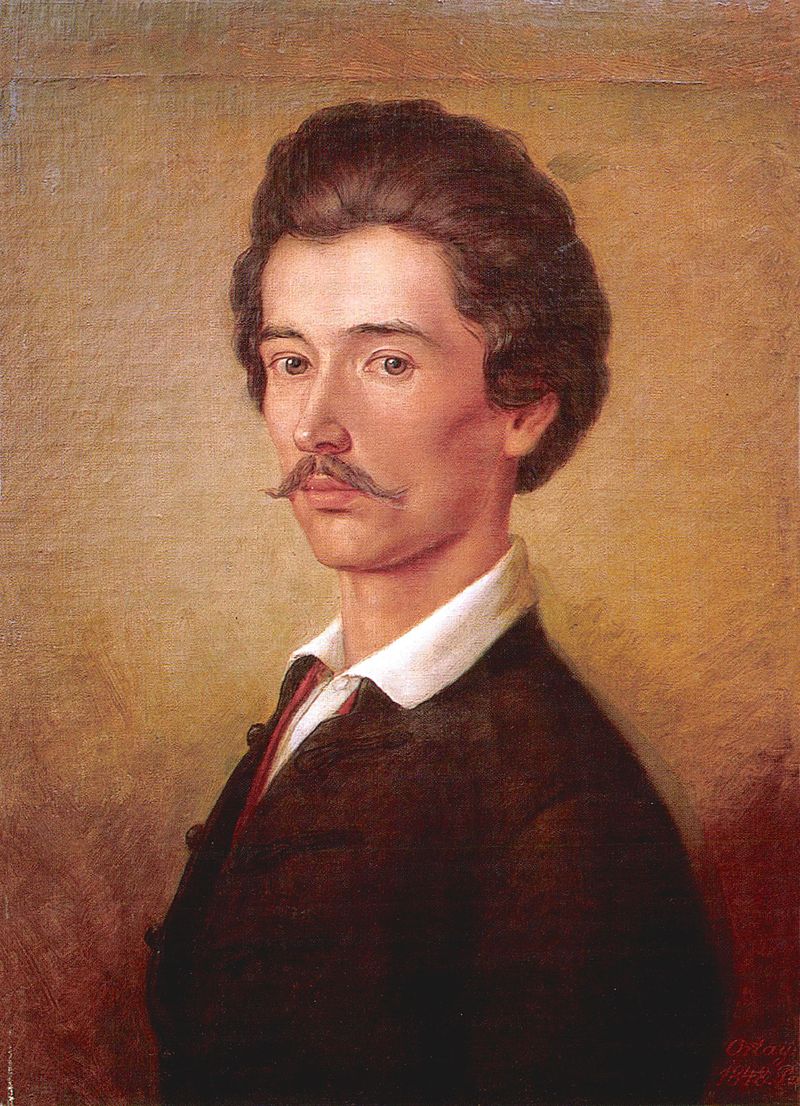As the same monarch ruled over the Kingdom of Hungary and the Austrian Empire, the revolution in 1848 began following widespread national discontent with taxation and a general desire for freedom of the press, freedom of religion and an independent parliament for Hungary. The desire for independence was also driven by other revolutions across Europe at this time.
After the emergence of Lajos Kossuth in the parliament, full independence was demanded in Hungary which resulted in the military intervention of Habsburg forces and a full-scale independence war raged in the country for over a year. After a series of severe Austrian defeats in 1849, the Austrian Empire came close to the brink of collapse. The young emperor Franz Joseph I had to call for Russian help and by October 1849 the war for independence was lost.
Sándor Petőfi was one of the central figures of the revolution. His poem Talpra Magyar became the anthem of the events. The legend says he read the poem aloud on the steps of the Hungarian National Museum to a gathering crowd, who by the end were chanting the refrain, giving them hope and motivation to fight for their independence.

Soma Orlai Petrich - Historical Exhibition of the Hungarian National Museum Guide, 18th and 19th centuries, ISBN 963-208-743-7, p. 49. (Magyar Digitális Múzeumi Könyvtár)
His poetry was influenced by folk tales and stories. One of his most famous works was a twenty-seven-chapter long poem, János Vitéz, “John the Valiant”, written in 1845. It is a fairy tale telling the story of Kukorica Jancsi and his love for Iluska.
Petőfi often chose love and revolutionary as a theme for his poems. The latter became the basis for the legend that surrounds Petőfi. As he himself wrote in his well-known poem “Freedom, love!”
Freedom and love my creed!
These are the two I need.
For love I'll freely sacrifice
My earthly spell,
For freedom, I will sacrifice
My love as well.
Petőfi disappeared during the Battle of Segesvár, July 31, 1849, and was assumed to have died in the fighting, though his body was never discovered.
Petőfi today
Petőfi was born 200 years ago but his popularity has never diminished in Hungary. Petőfi Museum of Literature (“Petőfi Irodalmi Múzeum”) was furnished in 1954 and is responsible for the collection, preservation, processing, publication, and exhibition of literary memories. In addition to the permanent Petőfi-exhibition and the temporary exhibitions, the museum also offers a variety of programs such as literary discussions, readings, book presentations, roundtable discussions, summer concerts, and theatre shows.
During the 2022-2023 Sándor Petőfi commemorative year Hungary celebrates his legacy with bicentenary programs, rural museums, and the development of literary memorial houses and memorial sites. At the Petőfi Museum, a new permanent exhibition about the author has opened to visitors.
Sources: